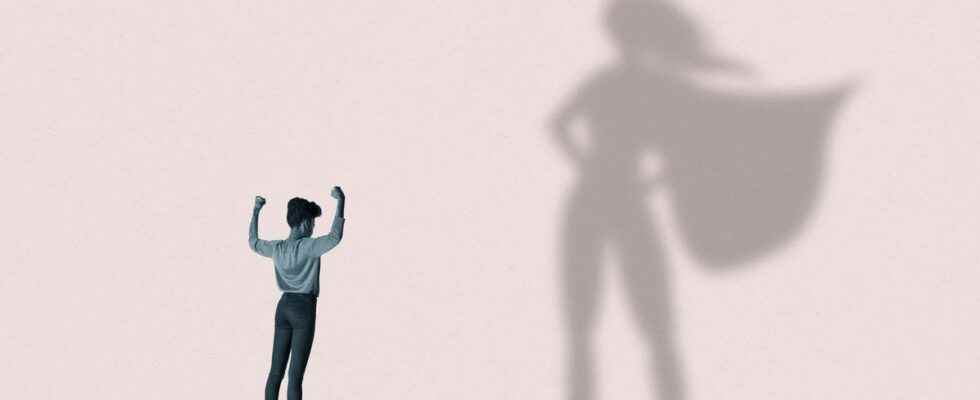Published on 05/17/2022 at 2:50 p.m.,
Reading 3 mins.
Standing tall, arching your chest, or putting your hands on your hips may help you feel more confident. A new study has recently proven that certain postures have a positive impact on self-esteem and behavior.
Researchers from the German Martin Luther Universities of Halle-Wittenberg (MLU) and Bamberg and the American University of Ohio combined data from 130 experiments on posture and body language from published and unpublished results. Complex statistical methods were then used to reassess the data on 10,000 people.
The researchers wanted to know if posture influenced a person’s self-perception, behavior and hormone levels. The results were published in the journal Psychological Bulletin May 16.
Research has thus demonstrated the beneficial effects of certain postures on individuals. This is called the power posing. They, however, refuted the controversial claim that certain poses influence a person’s hormone levels.
What is power posing?
In non-verbal communication, power posing is the idea that certain postures allow you to influence the way others look at you, and especially the way you look at yourself. This widely controversial theory was introduced into the public sphere in 2012, thanks to the TED Talk”Your body may shape who you are” by Amy Cuddy.
There are 2 types of pose:
- Low power poses; closed and take up little space
- High power poses; open and take up a lot of space
Among the high power poses:
- The pose of the superhero: like Wonder Woman or Superman, it consists of standing straight with the hands placed at waist level, the feet hip-width apart, the torso slightly forward and the chin tilted upwards.
- The pose of the performer: Inspired by Mick Jagger, this pose involves standing with your feet apart and your hands raised above your head to form a V.
- Obama pose: Correlated to the former President of the United States, this pose involves sitting with your feet up on a table, legs straight, body back, and hands behind your head.
- Dominant Giant Pose: in reference to another American president, Lyndon B. Johnson who was 1.92 m tall, this pose consists of leaning forward with the hands supported and spread apart on a table.
- The pose of the CEO: in homage to Oprah Winfrey, this pose consists of sitting comfortably in your chair with your feet on the ground, your body a little back and your hands behind your head.
Good in your body, good in your head!
Power posing and self-perception
Posture and body language are popular tools used in psychology. “In therapy, they can help people feel safe and experience positive feelings”explains psychologist Robert Körner of the MLU and the University of Bamberg.
Poses as mentioned earlier could influence a person’s feelings and self-esteem. According to several studies, the pose of the performer is supposed to increase self-confidence, for example.
After reassessing the 130 studies, the researchers found a link between power posing and better self-perception. “A dominant pose can, for example, make you feel more confident”explains Professor Astrid Schütz, personality researcher at the University of Bamberg.
The team found a similar correlation between power posing and behavior, for example a better pose would make you more consistent in effort and improve your sociability.
On the other hand, the claim that certain postures can stimulate physiological phenomena, for example the secretion of hormones, such as testosterone and cortisol, which had been put forward in previous research, has not been confirmed. “Findings regarding the physiological effects of strength poses are not robust and have not been replicated by independent research groups”concludes Astrid Schütz.
However, the researchers insisted that almost all of the studies so far have been conducted in so-called societies. “WEIRD” (Western, Educated, Industrialized, Rich and Democratic) in English, or western, educated, industrial, rich and democratic societies. Research would therefore need to be conducted in different cultures to see if the results apply. On the other hand, there were no differences according to gender or age of the participants.

